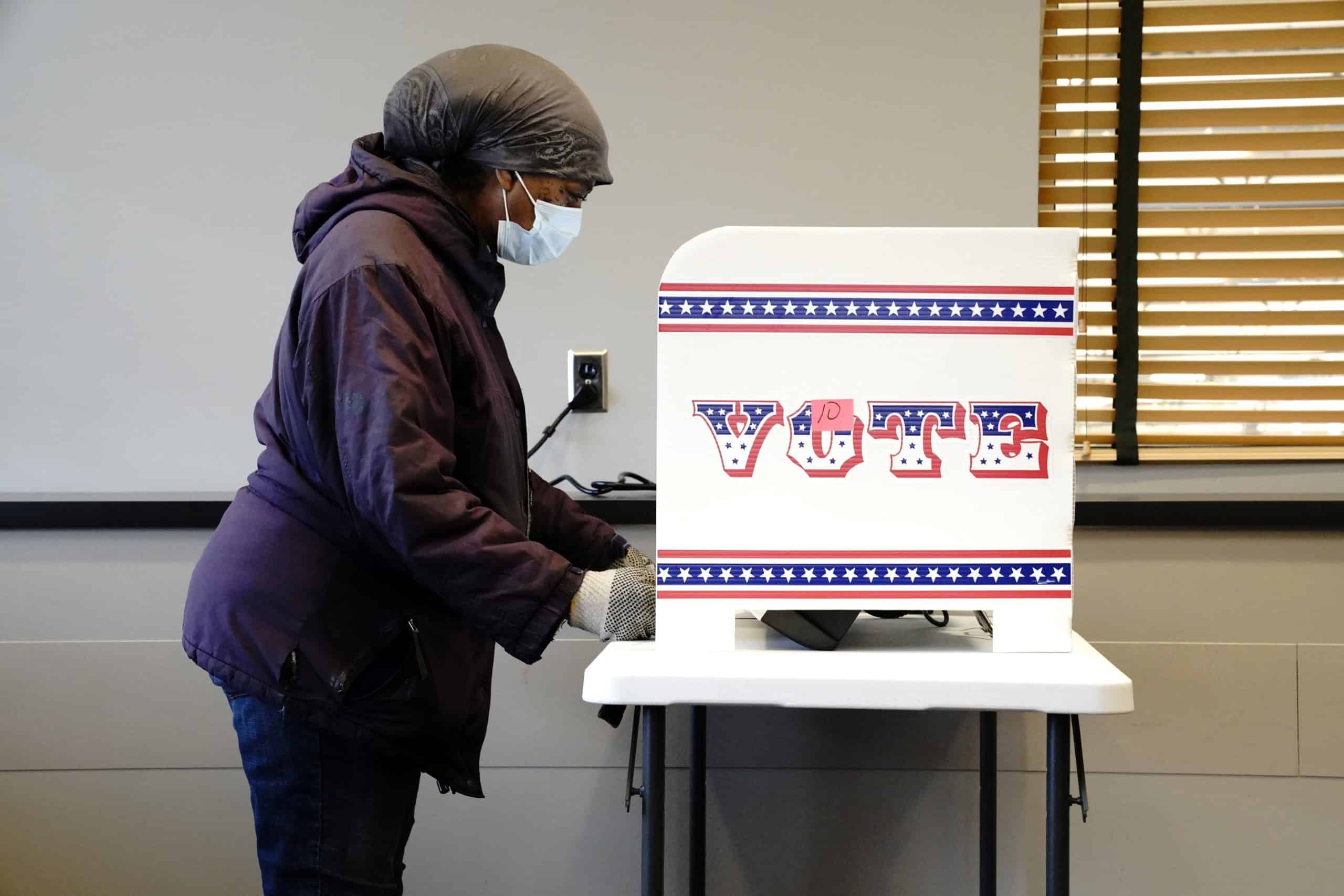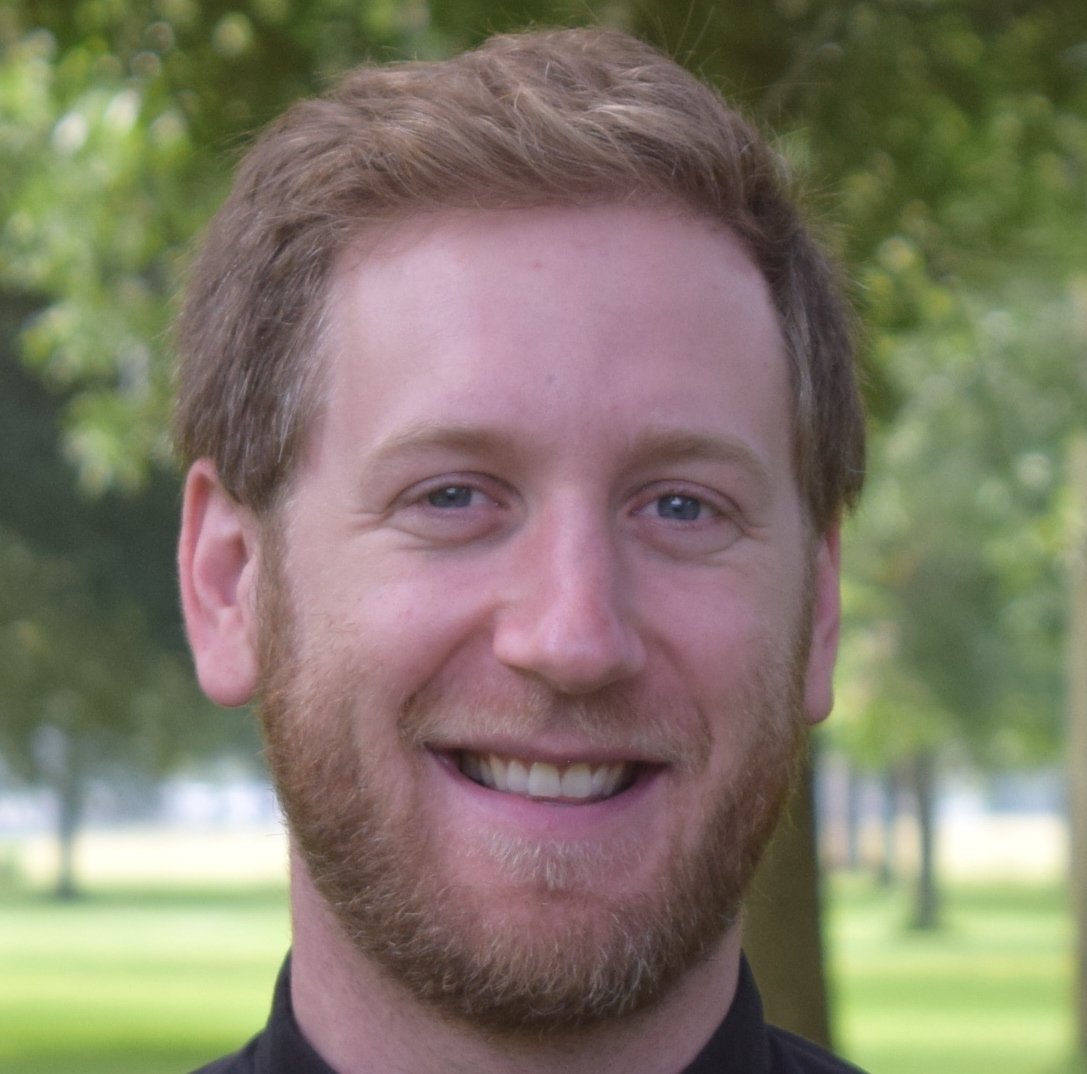Catholic voters are a much-discussed constituency in American politics. As Alex Hale noted recently, no major political party in the United States aligns with Catholic teaching. Because of this, politicians make concerted efforts to win over Catholic voters. This gives Catholics a unique position of politically engaging in an alternative way: one that requires boldness, ingenuity, and imagination.
During this fraught, polemical and anxiety-ridden election season, I find myself returning to this question: WWJKD? What would John Kavanaugh do?
Who was John Kavanaugh? Fr. John Kavanaugh was a Jesuit priest who taught at Saint Louis University for over three decades. He was a well-loved professor and philosopher of the human person and wrote a column for many years in America magazine on life issues and moral quandaries in American Church and society. He was a fierce advocate of the dignity of the human person, from the unborn to the exploited worker, from people sentenced to death to the care for patients in end of life care. And he was bold. He was radical.
In one of his books, Fr. Kavanaugh argued that “intentionally killing a human person is never ethically permissible.” (Who Count as Persons?, 4) When defending this thesis in a talk once, an audience member challenged Fr. Kavanaugh by posing a scenario where a foreign country invaded and soldiers came to Fr. Kavanaugh’s house to threaten him and his (hypothetical) family. When Fr. Kavanaugh doubled down, saying he would not seek to kill the invaders, even in self-defense, the audience member told him: “you are too radical.” Fr. Kavanaugh wryly responded: “If you think that is radical, you should read the Gospel of Jesus Christ.”
It was Fr. Kavanaugh’s adherence to the radicality of the Gospel that made him radical. And it was his fidelity to the Gospel that led him to engage in politics in a particular way. Through his preaching, he challenged the average person in the pew and the most powerful politicians seeking office. The best example of this came in 2008 when Fr. Kavanaugh wrote open letters to then-Senator Barack Obama and Senator John McCain. In each letter, Fr. Kavanaugh praised certain positions each candidate held when they aligned with Catholic teaching on life issues. He also boldly criticized both candidates for positions they held which denigrated human dignity, again applying Catholic teaching.
Fr. Kavanaugh exemplified a key tenet of the US Bishops’ voting guide, Forming Citizens for Faithful Citizenship:
As citizens, we should be guided more by our moral convictions than by our attachment to a political party or interest group. When necessary, our participation should help transform the party to which we belong; we should not let the party transform us in such a way that we neglect or deny fundamental moral truths or approve intrinsically evil acts. We are called…to help build a civilization of truth and love. (§14)
Fr. Kavanaugh drew upon his moral convictions, grounded in the Gospel and Catholic Social Teaching, to invite both candidates to evaluate their views on policy against the dignity of all human persons.
How often do we, as Catholic citizens, do the same, especially for candidates whom we support on a majority of issues? All too often, Catholics allow party affiliation to eclipse their baptismal commitment and call to be prophetic: to challenge candidates to uphold dignity and life in their policy proposals. We shrink back in the face of an obvious risk: to act in this way is to wade into a “no man’s land” in the midst of an ongoing battle between polarized sides.
If it was difficult when Fr. Kavanaugh waded into this “no man’s land” 12 years ago, it seems even more so today. How did he do it? I think he exhibited the ancient virtue of parrhesia. Parrhesia, as Pope Francis defined it recently, is “boldness, enthusiasm, the freedom to speak out, apostolic fervor.” (Gaudete et Exsultate, 129) Francis says that we need this virtue because we often flee to safe havens that “have many names…. the rejection of new ideas and approaches, dogmatism, nostalgia, pessimism, hiding behind rules and regulations.” (134)
Many of us American Catholics know these safe havens all too well. We lament our country’s political polarization yet do little or nothing about it, because ‘what else can we do?’ Or we cling tighter to party affiliation as though one candidate or party can save our country. Or we disengage completely from politics, throwing up our hands in disgust or despair. In short, we give in to complacency and fear.
What are we called to do? We are called to parrhesia, especially in this time. To discern the positions of candidates and name where human dignity is upheld, and to hold candidates accountable for the ways in which they fail to uphold the dignity of persons. To consider ways to communicate our thoughts to candidates and to friends and family as we all discern our vote and our political engagement. And, perhaps just as important as voting on November 3rd, to continue to engage elected officials on November 4th and beyond.
Next week, Kevin Kuehl, SJ, and I will co-author letters to both President Donald Trump, the Republican nominee, and Vice President Joe Biden, the Democratic nominee. We will do so from a similar framework that Fr. Kavanaugh addressed the major party nominees in 2008. We hope that in doing so, we might both provide a model and a guide for your discernment of how you will vote and what your political engagement will look like in the coming weeks and months.


